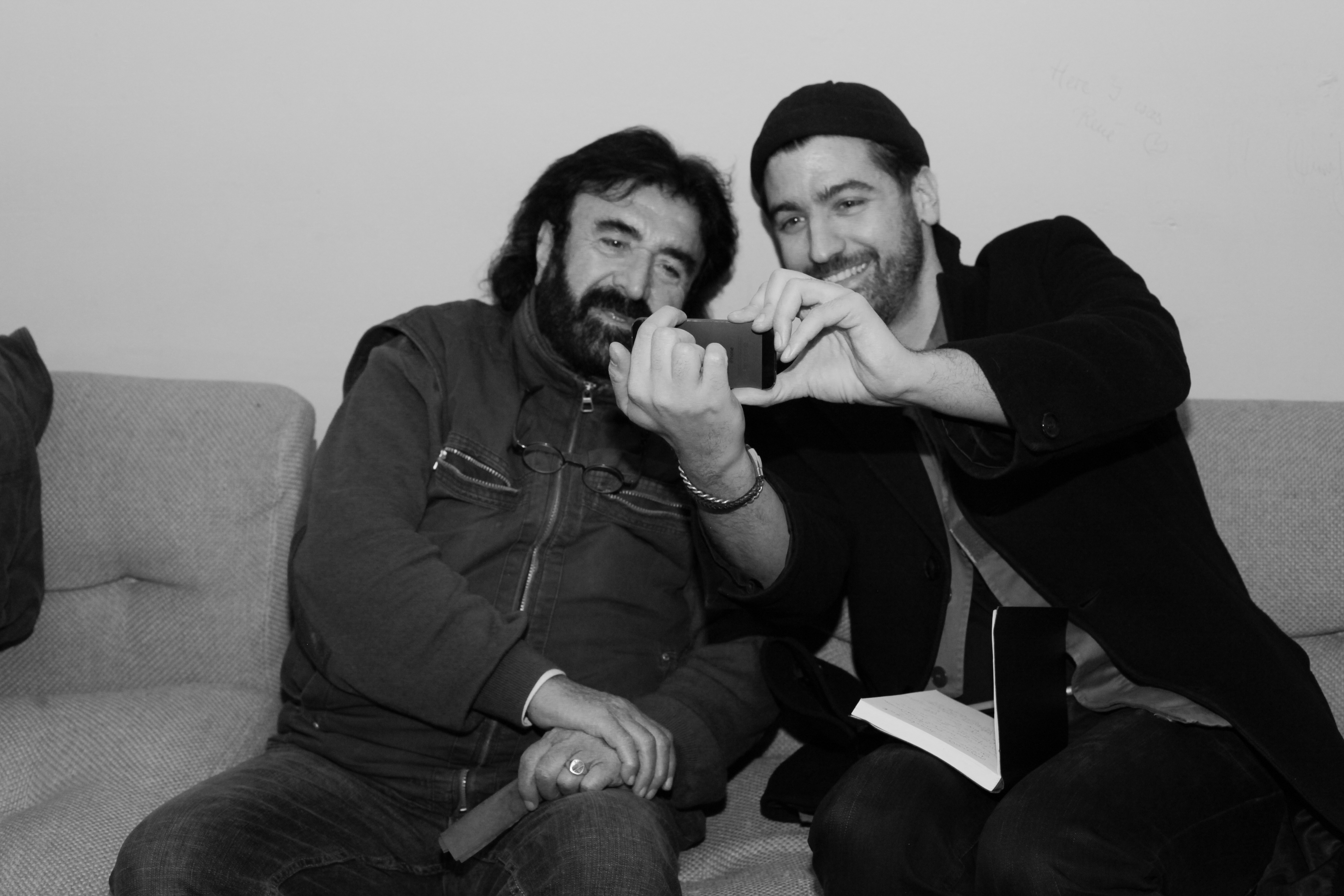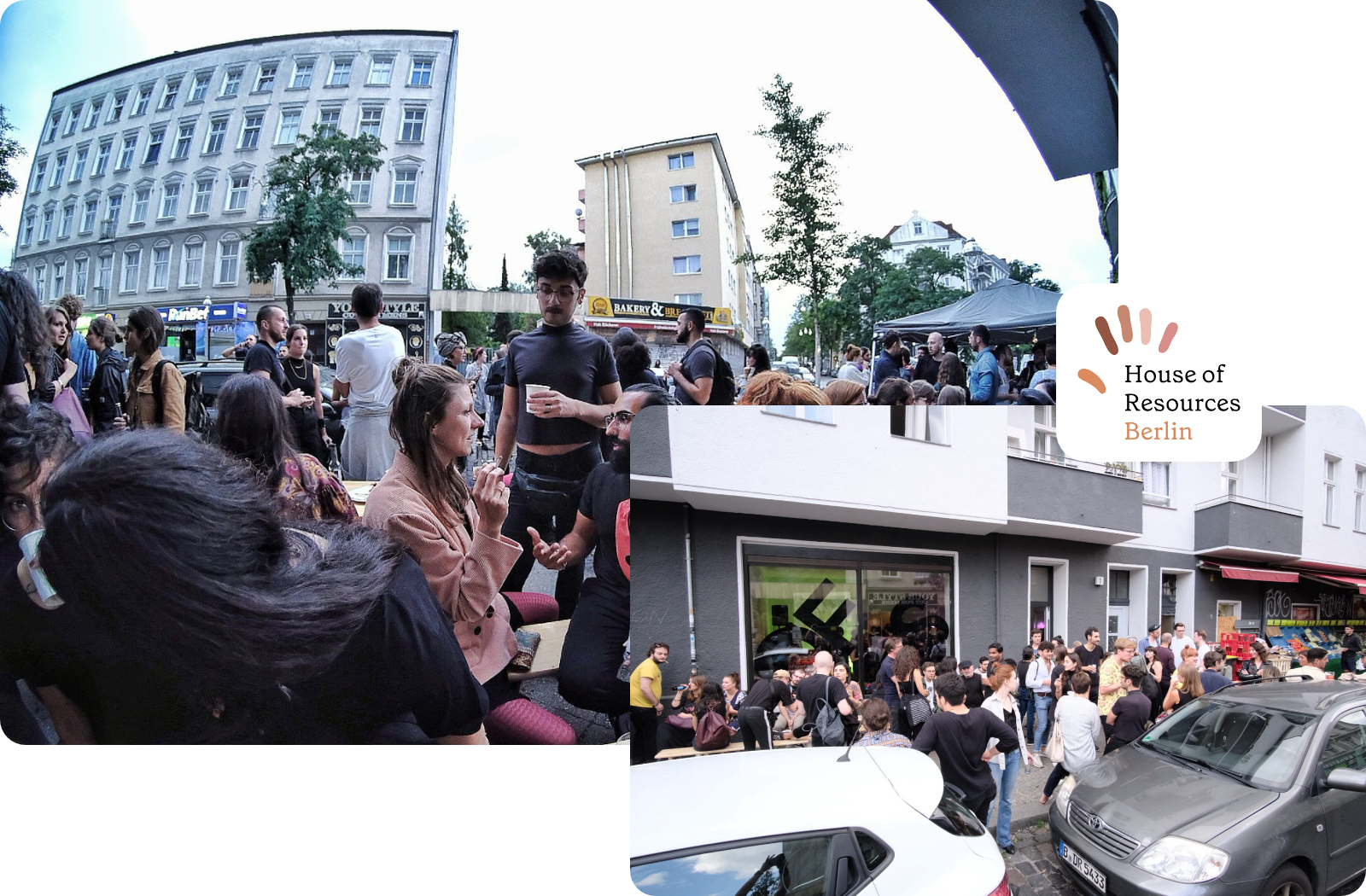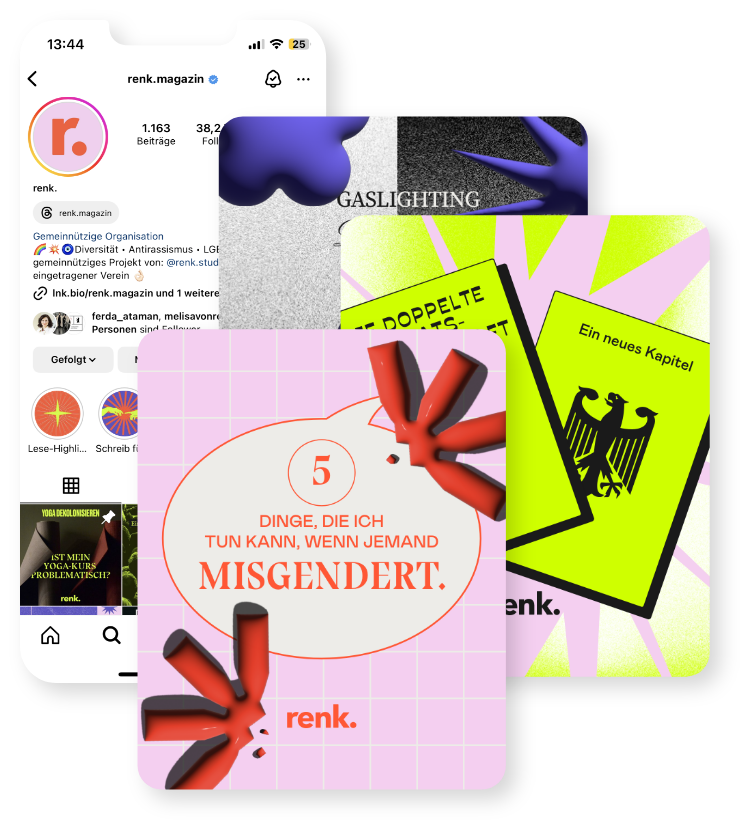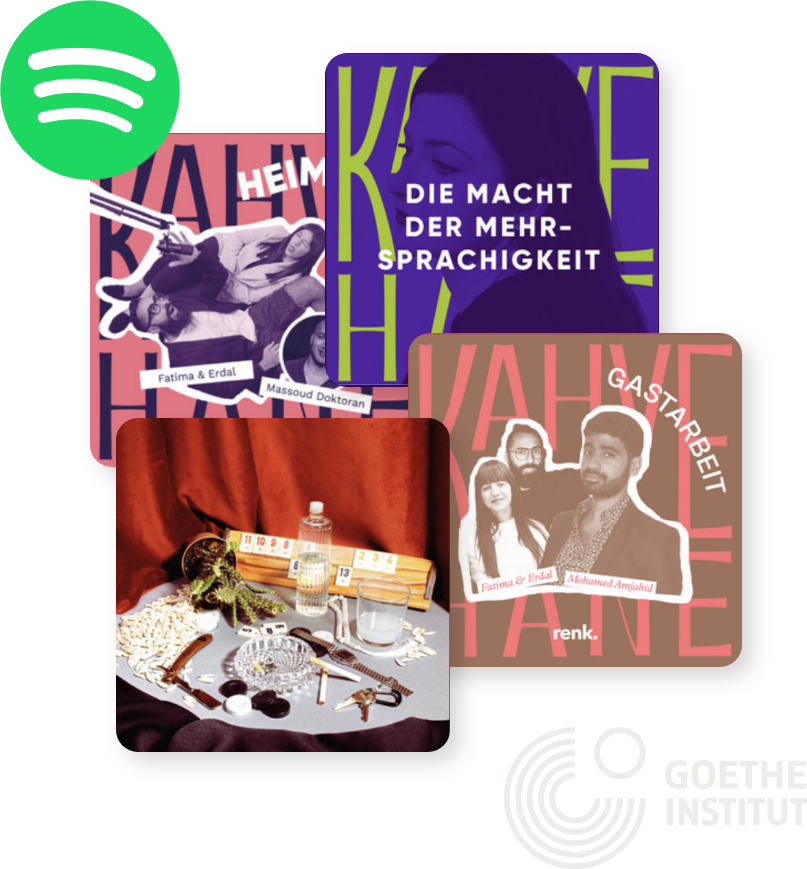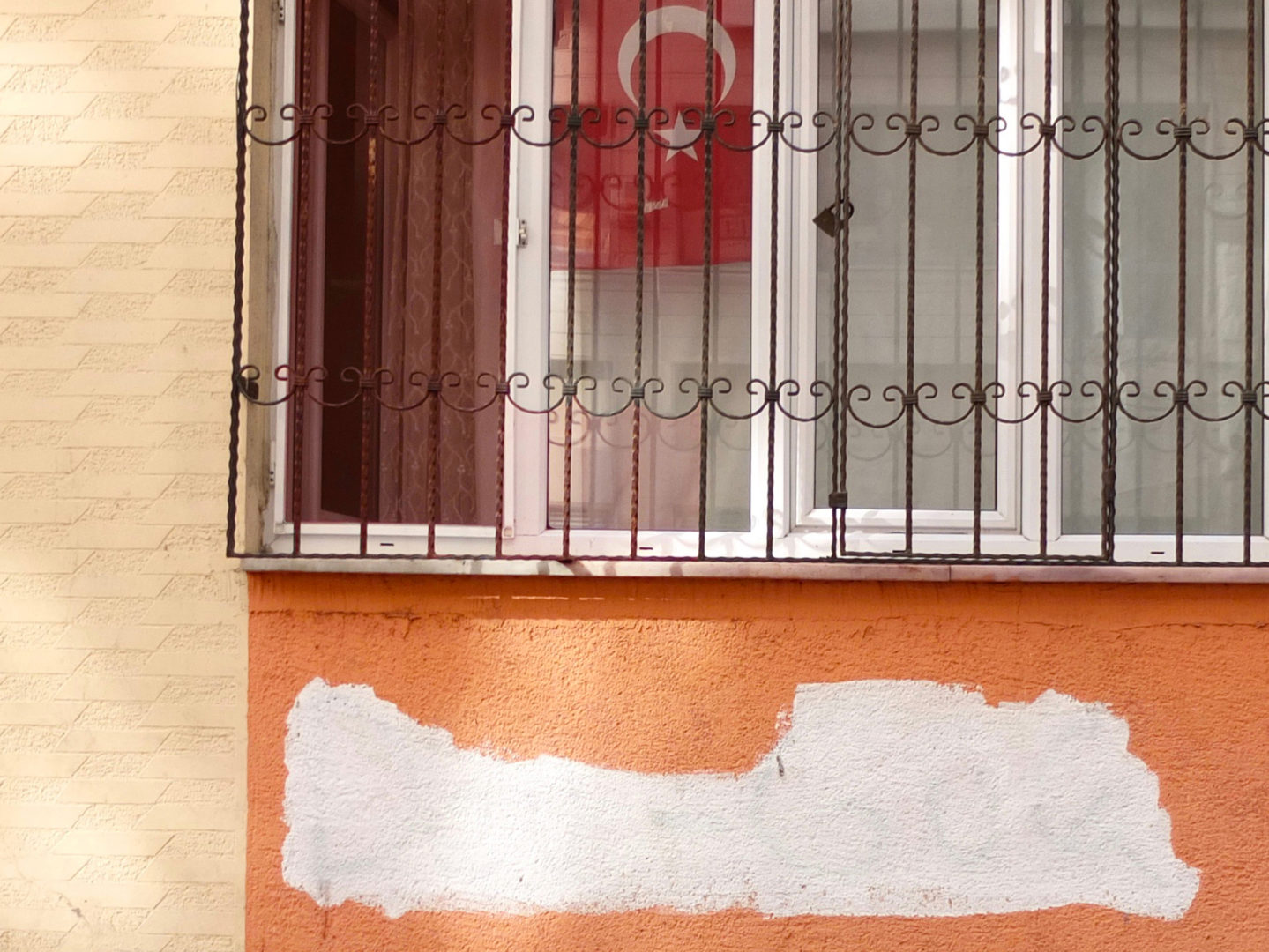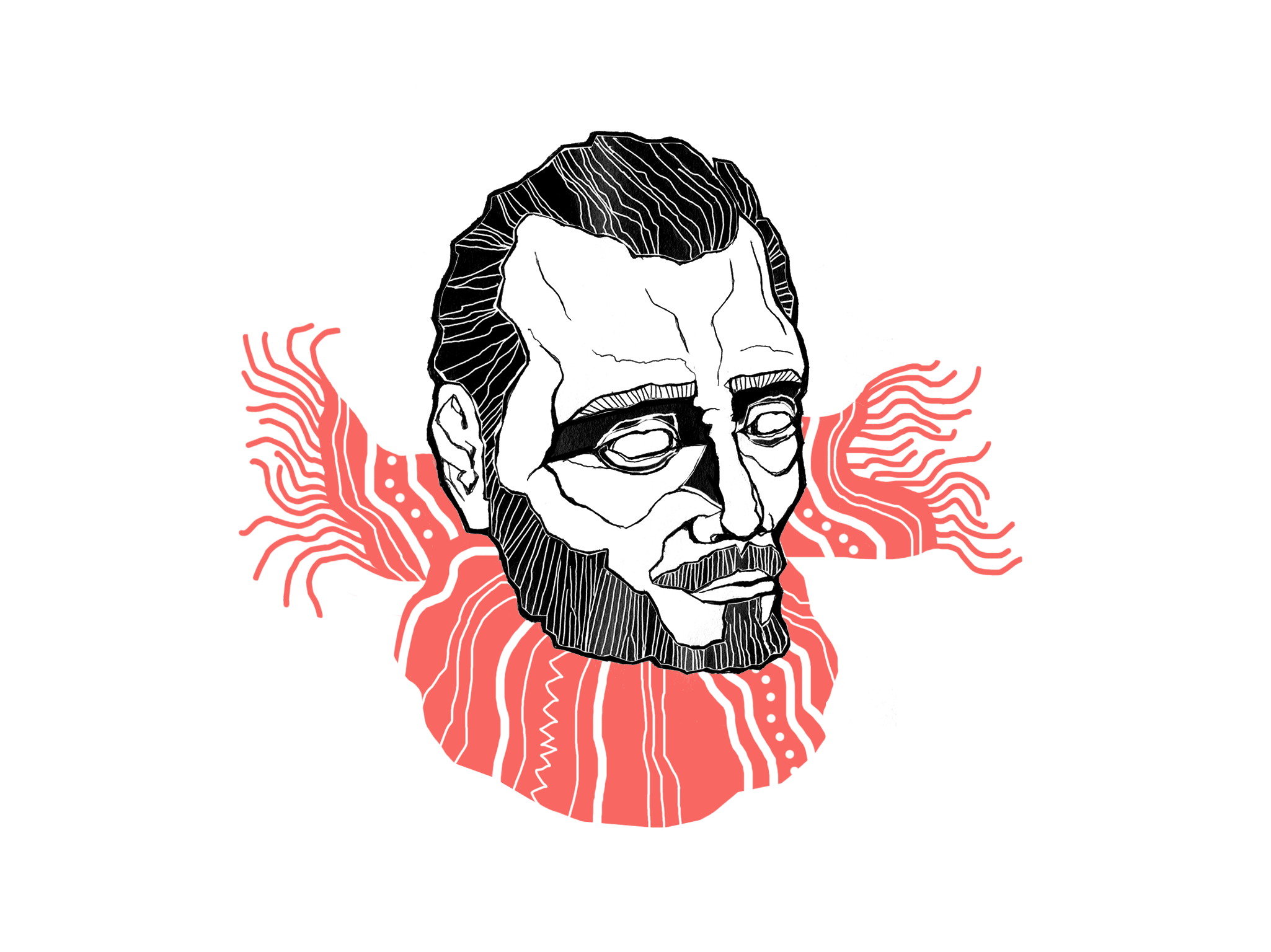Last Friday, Derdiyoklar Ali rocked the stage with Farfara at the legendary ACUD art house in Berlin-Mitte. I managed to get an interview Ali Akbar Aydoğan from Derdiyoklar, just before the show. I was really nervous, especially seeing as I was late. Luckily, Turks have a very fluid concept of time. We were all late, so it didn’t matter. I sat down with the big beardy man backstage and we started to talk.
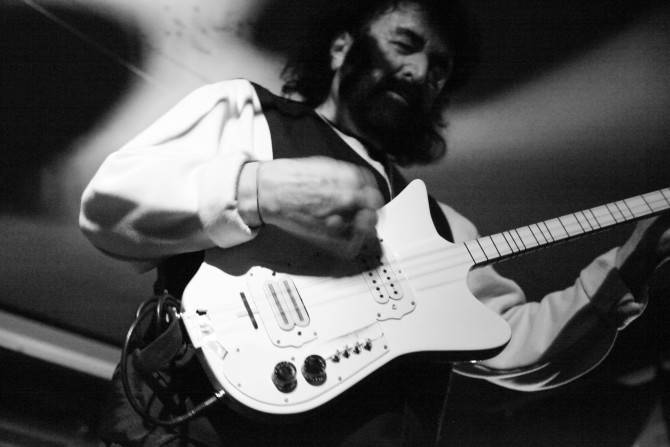
»THE INTERNET TOOK OVER«
It’s ironic that Turkish friends showed me Derdiyoklar Ali on the Internet before anyone else did. That was in Istanbul in early 2000. I was immediately catapulted back twenty years to my childhood. It was like finding a forgotten family photo when you move house. The music and performance got to me in a way I couldn’t actually grasp until I saw them live.
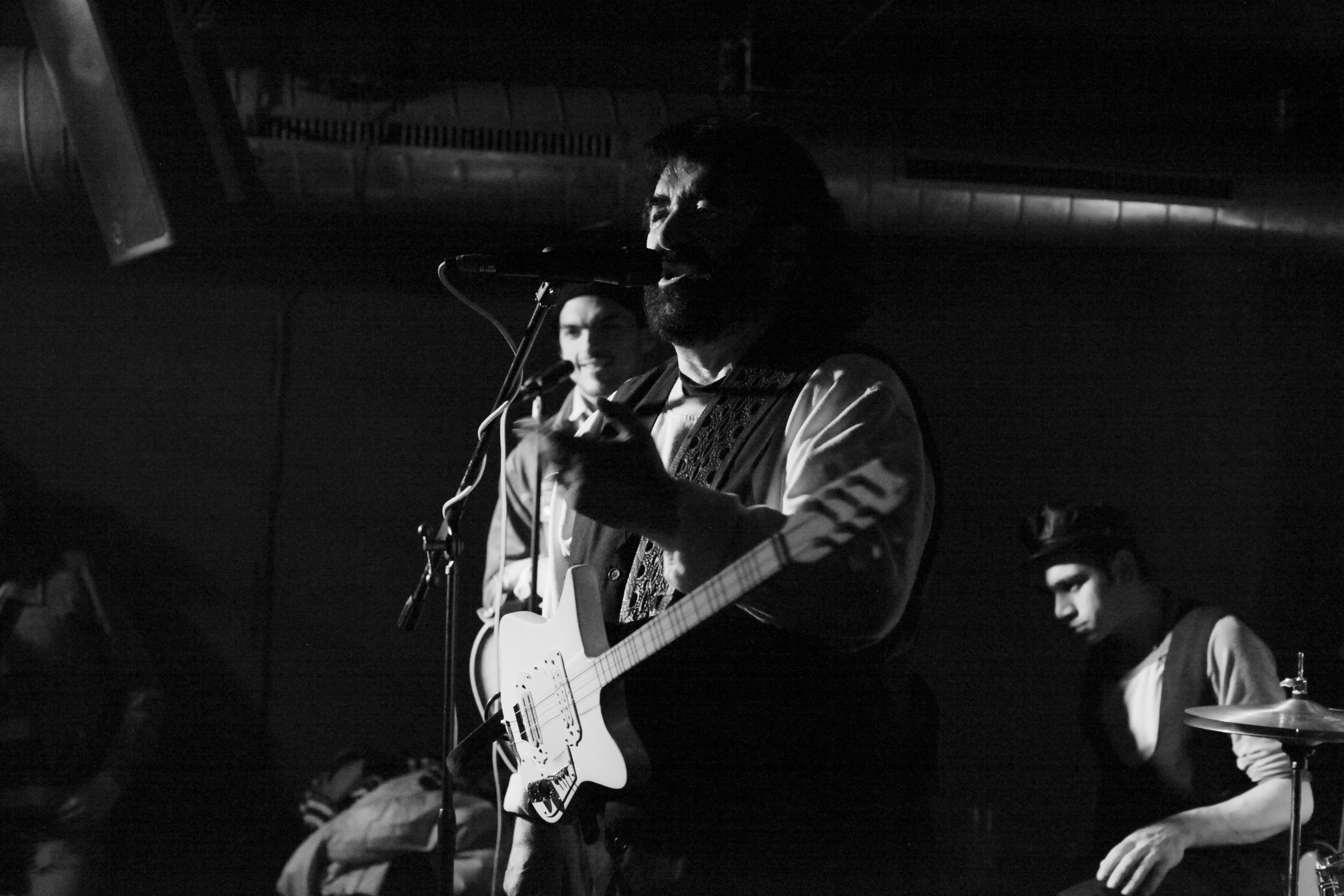
I say ironic, because nobody in Turkey really knew Derdiyoklar Ali in those days. My generation didn’t hear about them until old VHS recordings of Turkish weddings and »sünnet« (engl. circumcision – ed.) celebrations in Germany were digitalized and made available to all the younger musicians.
No one had heard of them because Türküola, their record label at the time, didn’t distribute their records in Turkey, as their songs were listed as protest music there. So any revenues from the GEMA (German licensing and copyright protection – ed.) or other international agencies went straight to the label. Derdiyoklar have yet to see a single kuruş. Their tapes were sold on the black market along with all the other protest music from Turkey.
FROM PROTEST MUSIC TO A WHOLE NEW GENRE
The history of Turkish protest music goes all the way back to the mystical ashik singers of the pre-Islamic period. Then as now, singers passed on stories and knowledge to the people and were regarded as champions of the truth. The same goes for Derdiyoklar’s music. With songs such as »Liebe Gabi« and »Hop Hop Dazlaklar«, they were quick to point out racism in Germany. When the Kohl government adopted a new law in the early 80s and immigrant workers were paid up to 20 thousand DM to emigrate, many ended up going back to an estranged home country. The money didn’t last forever and they soon felt abandoned. In true Anatolian epic style, Derdiyoklar Ali wove these people’s sadness into his lyrics, hoping to prevent others from making the same mistake. Is it a coincidence, that Helmut Kohl‘s son Peter married a Turk? Probably not.
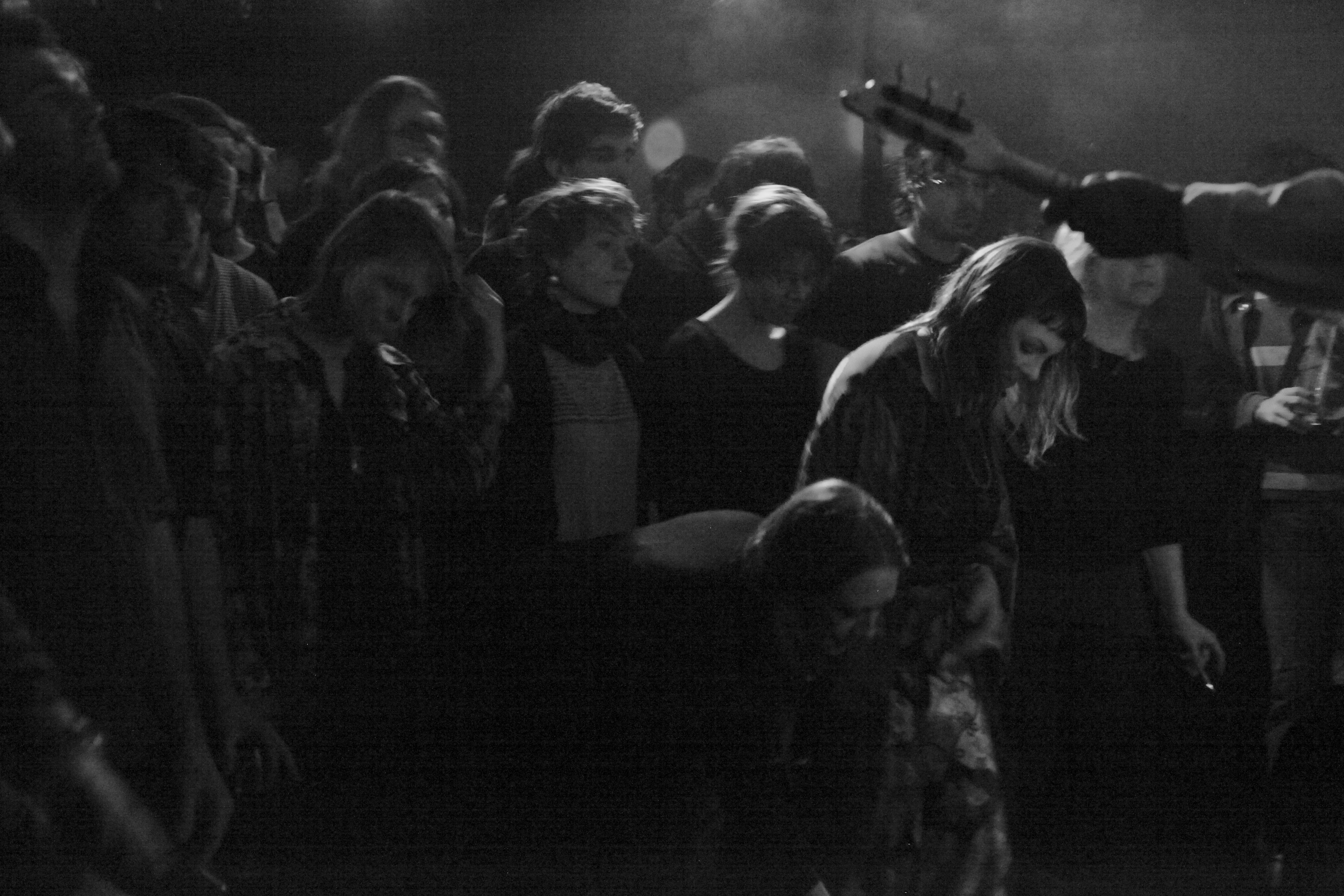
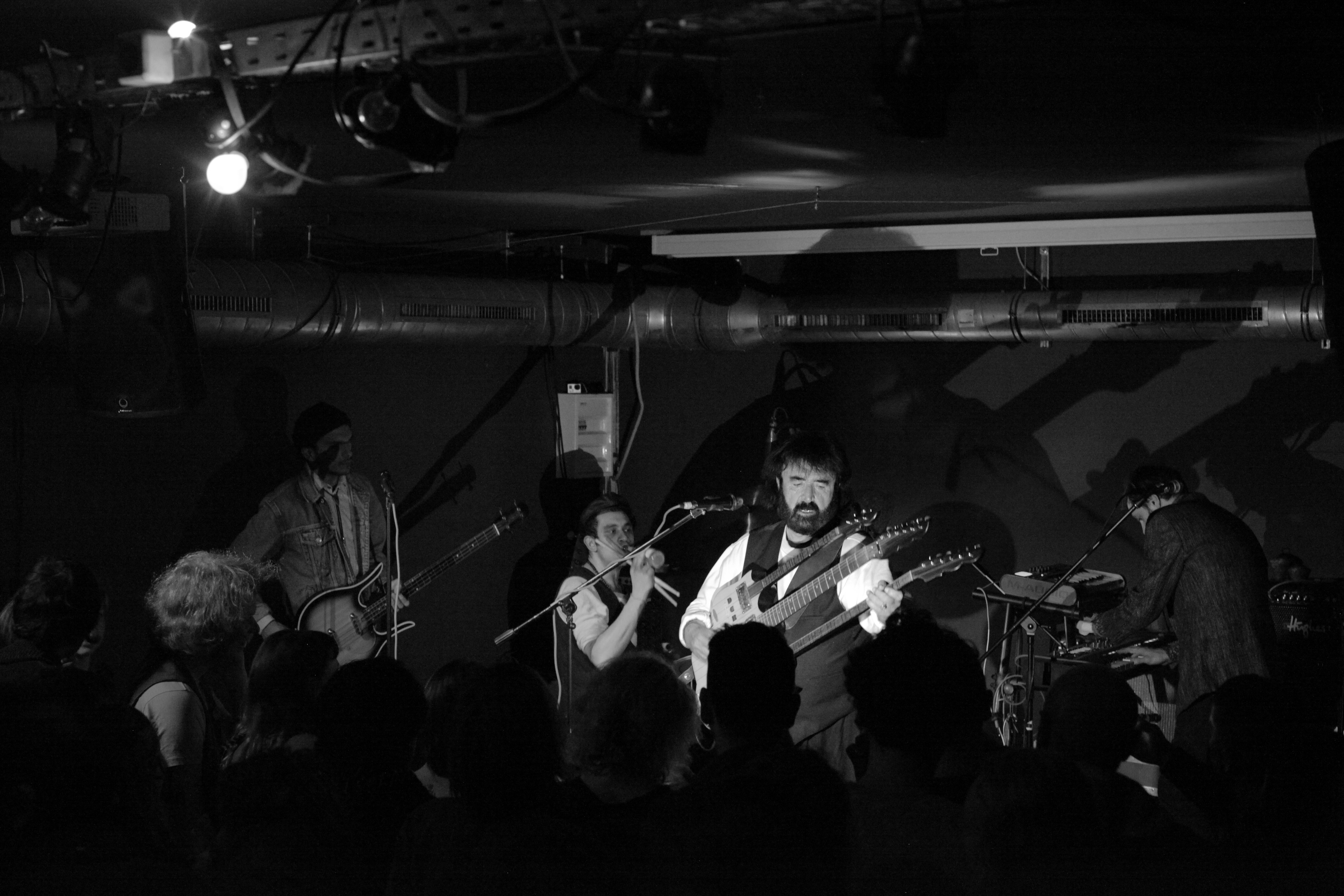
Derdiyoklar Ali’s talent runs in the family. He comes from a long line of singers and musicians.Aşık Mahzuni Şerif was his »Kirve« (engl. godfather – ed.). He started playing the tambour drum when he was a boy and wrote award-winning poems which were broadcast on the state radio station TRT – the same radio station which would later ban his music. He studied with some of the greats of his time. Arif Sağ told him to know the notes but not stick to them too closely, teaching him to follow his feelings from an early age. His lyrical style is reminiscent of Nâzım Hikmet’s free verse. He sings in several different languages and can play just about anything from an Arabic oud to the Greek bouzouki. With this eclectic background and a strong desire to unite the East and the West musically, he arrived in Germany in the early 70s straight from Istanbul. His first gigs were in »Gazinos« and »Muzikhols«. Calling themselves Derdiyoklar İkilisi, he and his partner Ihsan Güvercin soon became the stars of almost every Turkish party – and there were a lot of Turkish parties. The sound they created was just mind-blowing. Derdiyoklar Ali has been called the Turkish Jimmy Hendrix. When I mention this, he tells me that he hadn’t heard of Hendrix at the time and simply did his own thing. He took disco, pop, folk, funk, krautrock and psychedelia and then fused it all together with traditional Turkish music.
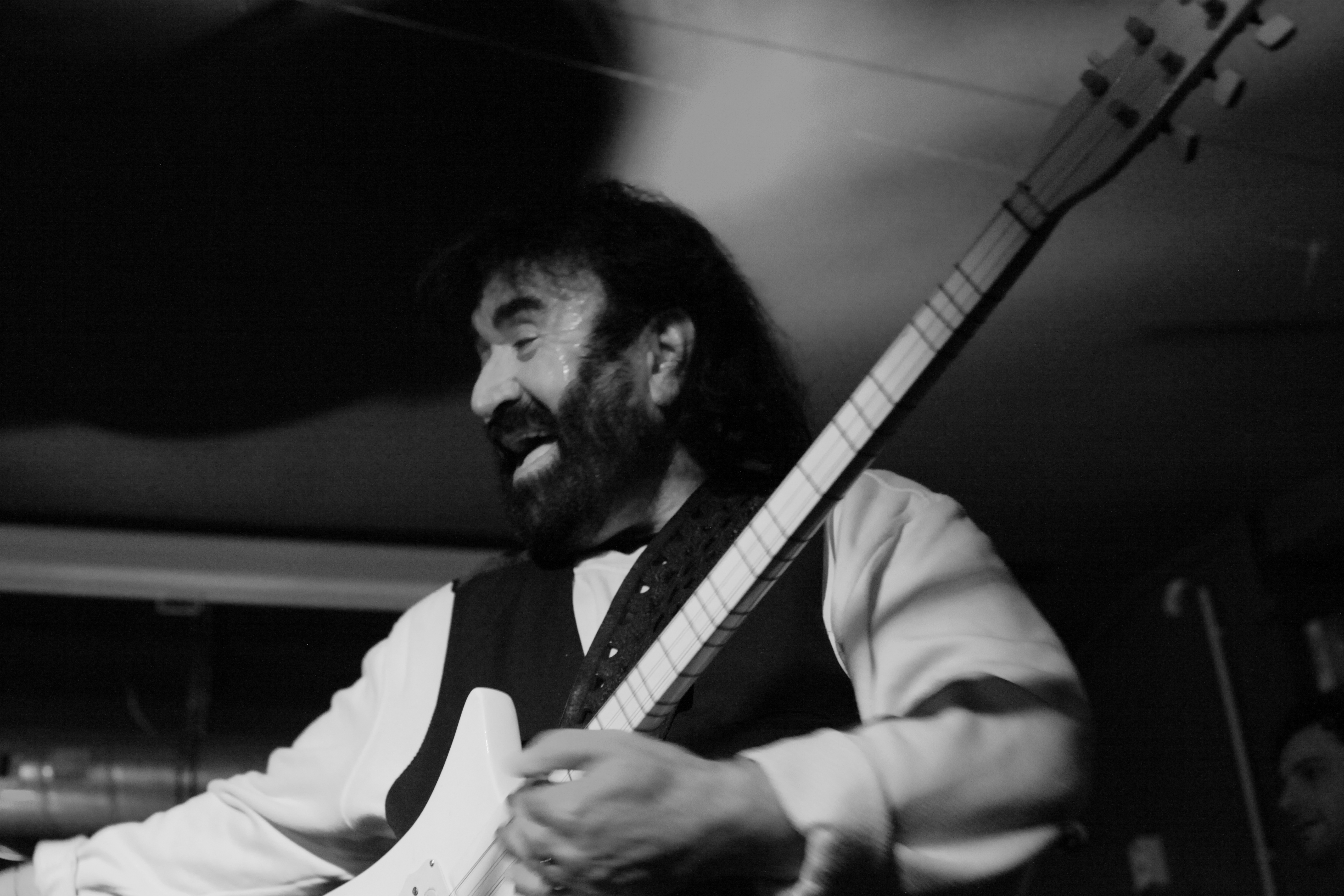
HIS MUSICAL LEGACY
Today, his music and style have influenced more than 3,000 performers in many different ways. He has had an impact on everything from Barış Manço’s lyrics to riffs by Tarkan.
In fact, he has influenced a whole music generation of digital natives who discovered him on the Internet the way I did. Istanbul has a lively free improvisation subculture and it is easy to find traces of Derdiyoklar there. The progressive band Farfara is part of the scene. Unlike Ali, their guitarist Etkin Çekin was born in Germany and grew up in Istanbul. He told me that krautrock is where their music meets up with Derdiyoklar. Krautrock, played by German »Krauts« of all people! German bands like Can, Neu! and Amon Düül II … I’m really excited about this.
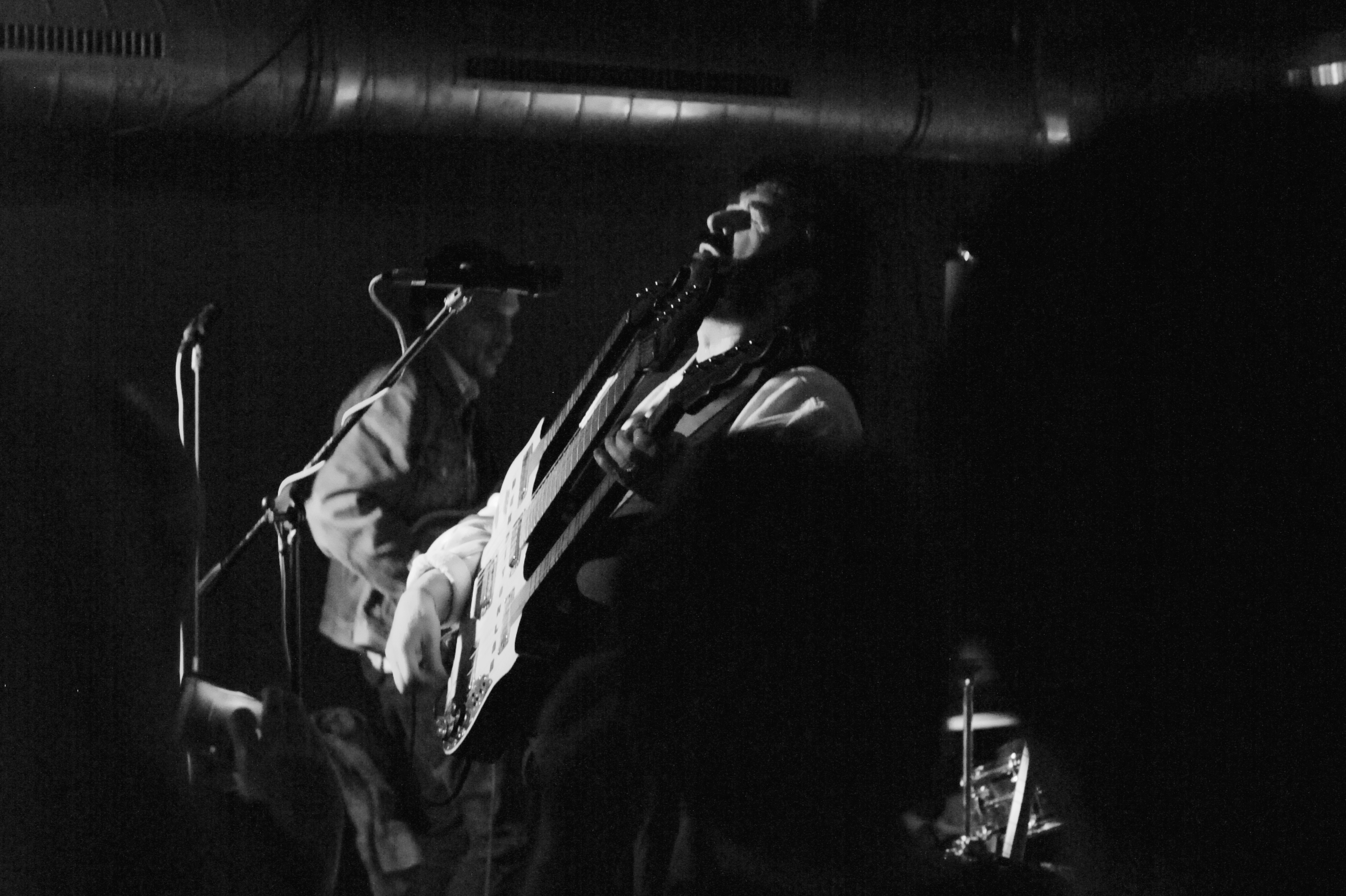
When the concert starts and the sound generates transcendental vibes, things fall into place. I remember the Aegean okra shoots on the Can album cover and I think I get it. The term »Kraut« is fairly fluid, so is the concept of being German. I realize just how cross-border music can be. Even if the older musicians feel the Internet has taken over, I secretly don’t think I mind.
Credits
Text: Selim Pekin Güngör
Photos: Sarah Ungan
